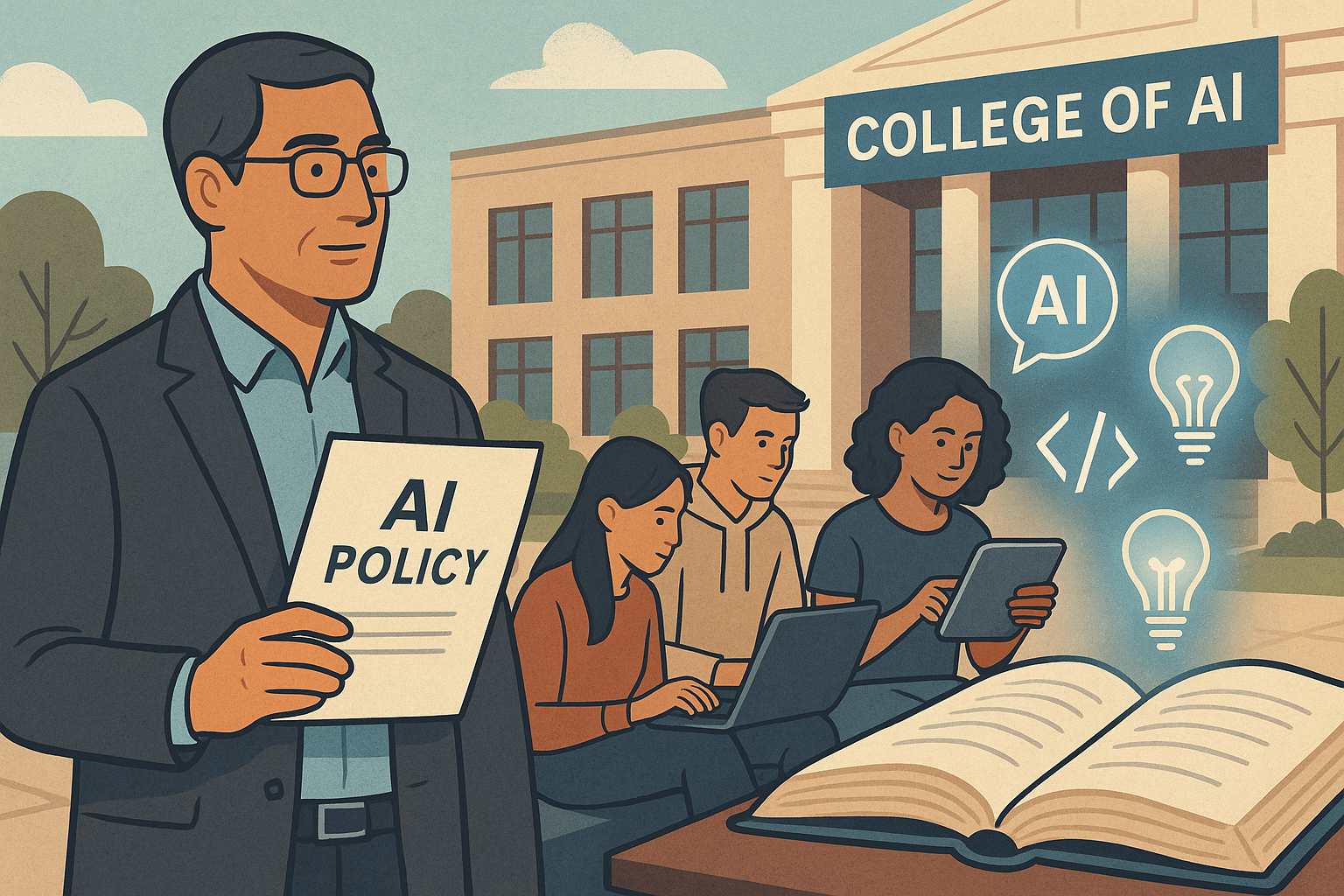AI in higher education is shifting from pilot projects to institutional foundations. This week brought the launch of a full College of AI at a public university, Microsoft’s move to embed Copilot directly inside learning management systems, and fresh attention to governance and fluency. Advisory boards, global partnerships, and campus-wide initiatives are now shaping how faculty and students work with these tools.
The week’s highlights: a university-level College of AI, LMS-native Copilot updates, calls for guard rails on AI tutors, readiness programs for both faculty and students, and international skilling alliances.


UTSA to Launch College of AI, Cyber & Computing
The University of Texas at San Antonio will open its new College of AI, Cyber, and Computing on September 1, bringing together more than 5,000 students across computer science, computer engineering, information systems/cybersecurity, and statistics/data science (UTSA, 2025).
The Details
- Launch coincides with the start of the fall semester, serving over 5,000 students.
- Four departments consolidated under one academic umbrella.
- New downtown facilities colocated with civic and industry partners for applied learning.
Why it Matters
Establishing a college, rather than a center, anchors faculty hiring, curriculum design, and funded research. It also ensures policy and academic integrity frameworks extend across disciplines, influencing assessment and graduate mentorship.
Microsoft EDU: Copilot & Microsoft 365 LTI Updates for Fall
Microsoft’s August education roundup introduced Microsoft 365 LTI, which embeds Copilot and other M365 tools directly in major LMS platforms, and expanded Copilot Chat access for both instructors and students (Microsoft, 2025).
The Details
- Public preview integrates Microsoft 365 and Copilot into Canvas, Blackboard, Brightspace, Moodle, and Schoology.
- Copilot Chat features have been expanded for teaching and learning contexts.
- Additional updates include Learning Accelerators and OneNote EDU improvements.
Why it Matters
Embedding AI tools within the LMS reduces barriers for course design, feedback, and accessibility. Centralized access supports professional development at scale and fosters consistent disclosure practices in coursework and research.

Expand to view Policy & Governance articles

Expand to view Programs, Research & Infrastructure articles

Expand to view Other News articles

Here are five quick steps you can take right now to keep your courses aligned with changes.
Betting on Institutional Readiness
This week reinforced that AI is no longer optional in higher education. Universities, technology providers, and global partners are weaving it into the very structure of teaching, research, and student support. The critical test is whether faculty, governance, and student development can keep pace. Betting on institutional readiness means matching every platform rollout with equal investment in people, policy, and purpose.
References
All sources are hyperlinked in-text for immediate access to original publications.

